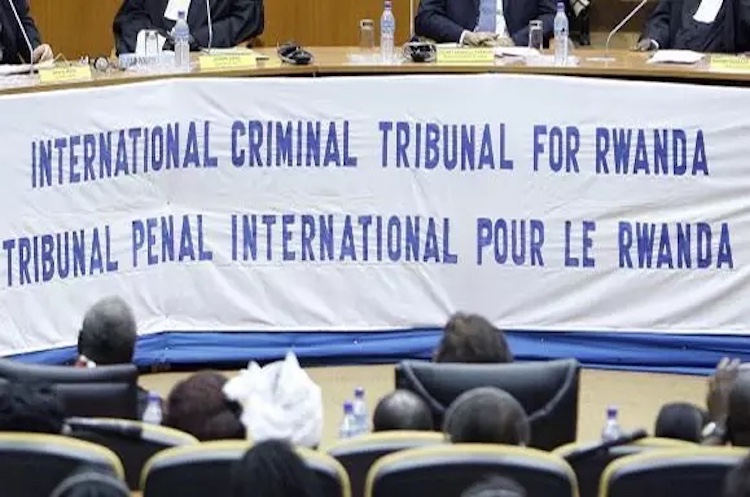Liberia Fails to Try a Single One
By Lisa Vives, Global Information Network
NEW YORK, 3 June 2023 (IDN) — After WWII, international, domestic, and military courts conducted trials of tens of thousands of accused war criminals. Efforts to bring to justice the perpetrators of Nazi-era crimes continued well into the 21st century.
The postwar trials set important legal precedents. Today, international and domestic tribunals seek to uphold the principle that those who commit wartime atrocities should be brought to justice.
Not so in Liberia.
There have been only three trials and two convictions in relation to the brutal 12-year conflict that ended nearly two decades ago. None of the trials were held in Liberia.
Rebel commander Alieu Kosiah was the first Liberian to face trial in Switzerland for war crimes committed during Liberia’s first civil war. Gibril Massaquoi of the Revolutionary United Front, a notorious rebel group, was tried in Finland for aggravated rape and murder but was eventually acquitted over insufficient evidence earlier this year.
Last year, a special court in Paris sentenced Liberian rebel commander Kunti Kamara to life in prison for his complicity “in massive and systematic torture and inhumane acts” against civilians in Liberia from 1993-1994.
This was the second guilty verdict delivered in Europe for crimes against humanity relating to Liberia’s bloody civil wars.
Kamara and Kosiah’s convictions—and even Massaquoi’s prosecution—were small but much-welcome victories in the battle to deliver justice to millions of Liberians still carrying physical and psychological scars from the conflict that claimed more than a quarter of a million lives between 1989 and 2003.
Under normal circumstances, three trials and two convictions for a brutal 12-year conflict that ended nearly two decades ago would not be worthy of much notice, let alone celebration. But the circumstances are not normal—these few European convictions and prosecutions are the only concrete steps towards holding Liberia’s war criminals accountable for the unimaginable pain they inflicted on civilians.
Over 10 years ago, in 2009, Liberia’s Truth and Reconciliation Commission issued recommendations that included the establishment of a special court for war crimes. But despite many promises by governments, such a court never materialized.
Liberia is failing to prosecute its war criminals mainly because many of those criminals have since become powerful politicians. The path to the presidency in the country is through forming alliances with such figures controlling large voting blocks, so no president seems too eager to greenlight a prosecution effort.
Prince Johnson, a former warlord facing many credible accusations of crimes against humanity, is now one of Liberia’s longest-serving senators. His influence over the populous Nimba county has made him a necessary ally to every post-war president in the country.
In 2020, Liberia’s senate proposed a Transitional Justice Commission to deliver “restorative not retributive” justice to those affected by crimes committed during the civil war. However, even this restrained attempt went nowhere, leading many Liberians to seek justice outside the country’s borders.
Finally, former Liberian President Charles Taylor was convicted by an international criminal court in 2012 of war crimes and crimes against humanity, but that was in connection with the conflict in Sierra Leone. He is serving his 50-year sentence in a prison in the UK. His son “Chuckie” Taylor is serving 97 years in U.S. prison for torturing and killing people while he was head of Liberia’s anti-terrorist services.
Elsewhere on the continent, Fulgence Kayishema, one of the most wanted remaining fugitives of the Rwandan genocide, is now before a court in the South African city of Cape Town following his arrest this week after 22 years on the run.
As many as one million people, mostly Tutsis, were slaughtered in 100 days.
Kayishema is accused of taking part in the killing of 2,000 people sheltering inside a Catholic church in one of the genocide’s bloodiest episodes. Accused of fraud related to applications he made for asylum and refugee status, plus giving his nationality as Burundian and using a false name, he faces five charges in South Africa. He will be held at Cape Town’s Pollsmoor Prison ahead of extradition to Rwanda.
“This appears to be just the start of a longer process for justice for many people who suffered during the Rwandan genocide,” said Al Jazeera’s Fahmida Miller, reporting from Cape Town.
The International Criminal Tribunal for Rwanda, holding hearings in Arusha, Tanzania, indicted 93 persons and convicted 62 for crimes in connection with the genocide. In Rwanda, more than 10,000 persons were tried for planning the genocide or committing atrocities. In 2005, the government also implemented the traditional community court system known as gacaca.
The gacaca courts tried more than 1.2 million cases before they closed in 2012. [IDN-InDepthNews]
Photo Credit: UN
Visit us on Facebook and Twitter.
IDN is the flagship agency of the Non-profit International Press Syndicate.
We believe in the free flow of information. Republish our articles for free, online or in print, under Creative Commons Attribution 4.0 International, except for republished articles with permission.

